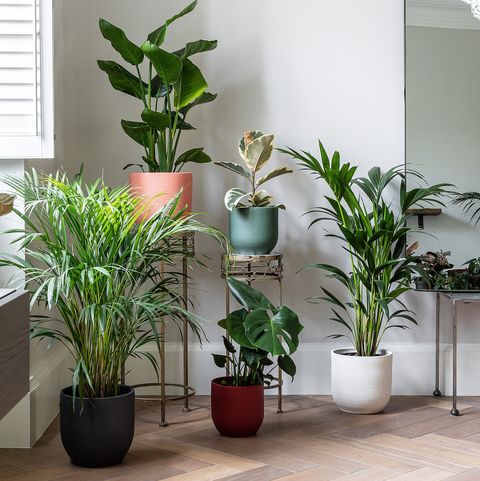
Location - Location - Location for Indoor Plant Success
When it comes to choosing the right location for your plants, it can often seem like a guessing game. But it doesn't have to be that way - with the help of this guide, you'll learn how to pick an ideal spot and guarantee your plants the best environment possible.
Research Plant Needs and Characteristics.
Doing research on the plants you’d like to introduce into your home is a crucial step in selecting the best location for them. Find out what kind of light, temperature and humidity levels they prefer and make sure the area you’ve chosen can provide these conditions. For instance, if you’re hoping to bring in more colorful foliage, be mindful that certain species prefer bright sunlight while others may do just as well with lower natural or artificial light. Knowing all this ahead of time will help you avoid disappointing outcomes when it comes to decorating your green corner!
Choose Areas Based on Sunlight Availability.
Different plants require different levels of sunlight, so it’s important to know what type of light each will receive. Position larger plants near windows so they can get more natural light, while smaller ones may do better with indirect light found in the middle of your room. If you have an east or west-facing window, keep that in mind when making your choices – plants positioned at those spots typically get more sunlight than those in south or north locations. Read More on Plant Light Requirements
If you have a low-light environment, consider choosing a plant from our Low Light Plants selection.
Check Room Temperature and Humidity Levels.
Before you place your plants in their ideal spot in your home, make sure you check the temperature and humidity levels. While some plants prefer warmer temperatures, a few may do better in cooler air. Additionally, it is important to consider room humidity when choosing the right spot for your plant – certain species need more humidity than others. You may also want to use an indoor thermometer/hygrometer to help monitor the temperature and moisture levels so that you can adjust them accordingly as needed.
Take Note of Ventilation and Air Flow Circulation.
Another important factor to consider when picking the ideal spot for your plants is ventilation and air flow circulation. Choose an area that has access to natural air flow, or a space where a fan can be used to provide your plants with the best possible environment. This will help regulate temperature and keep the plants healthy. Additionally, make sure to avoid any areas near drafts or cold windows which may over-expose your plants to extreme temperatures and damage them.
Consider Other Environmental Factors,
Such as Pets or Kids in the Home.
If you have kids or pets in the home, always double check that the spot you’ve chosen for your plants will allow them to be away from harm. Out of reach and out of sight is a great solution for this, even though most plants can do very well on top of shelves or countertops. Additionally, always research if your chosen plants are potentially toxic to your family members or pets. Check out our Pet Friendly Collection Carefully choosing plants that are non-toxic and safe for your home environment is key to create a happy, healthy home without any potential hazards.
For Further Assistance with your plants contact Contact Life Time Support



